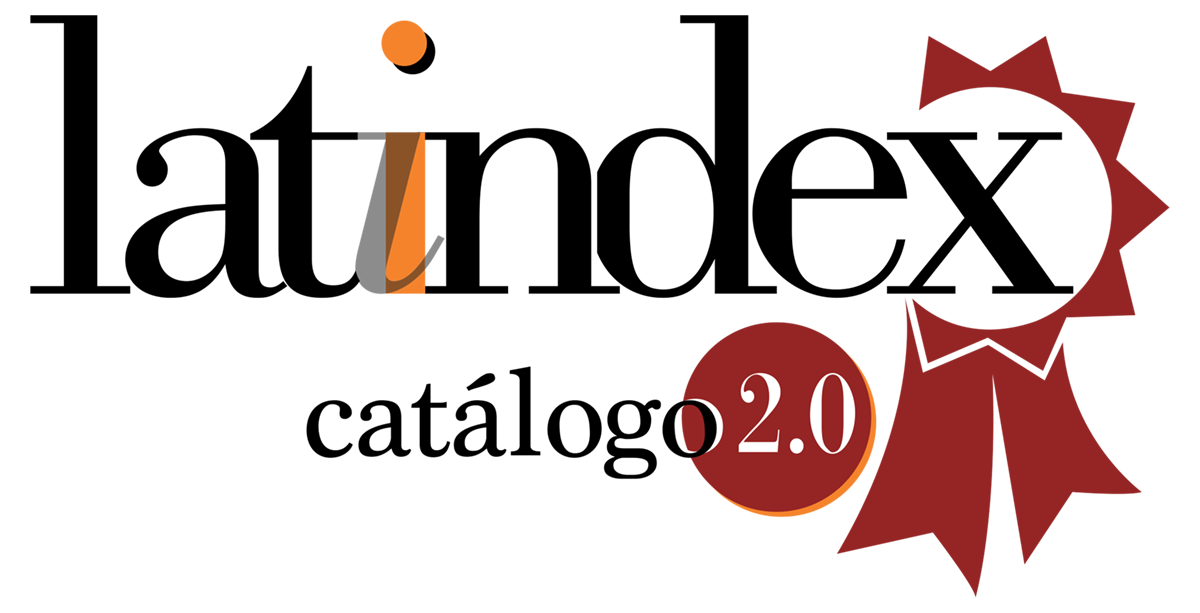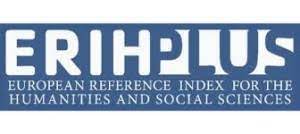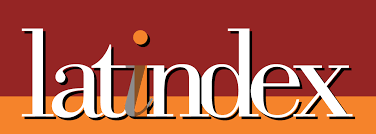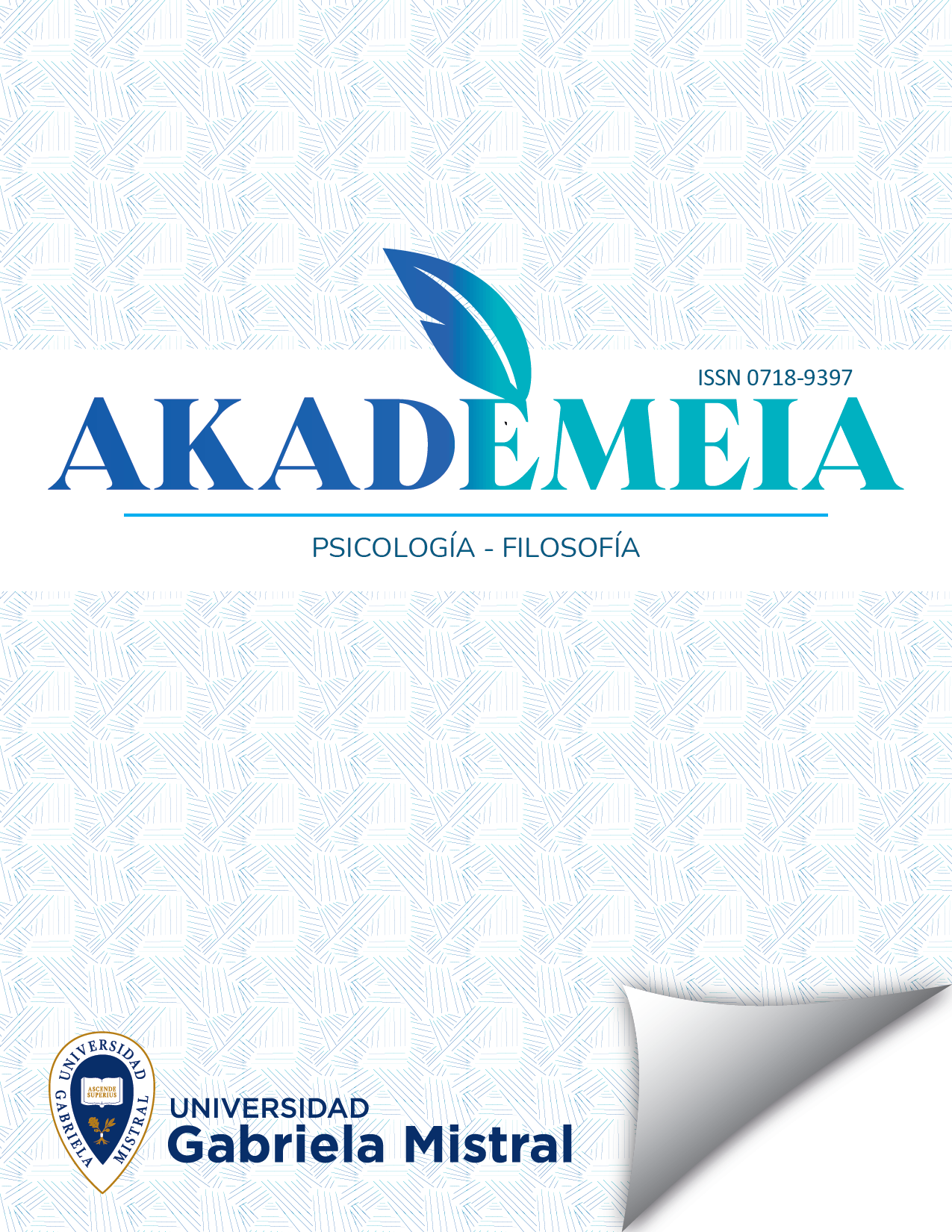Llamado a la transformación educacional como respuesta a la pandemia Covid-19: Abordaje del espacio de educación superior internacional, regional y nacional
DOI:
https://doi.org/10.61144/0718-9397.2019.332Resumen
La pandemia actual del Covid-19 ha generado un manto de dolor y de incertidumbre en todas las esferas de la sociedad global y con especial atención en el sector educacional. Las sociedades, a pesar de las paralizaciones observadas, han respondido de diversas maneras para afrontar el período de crisis sanitaria mundial cuya eficacia y logro queda aún por verse. Dentro de ellas, surge el liderazgo evidenciado por el espacio de educación superior en su rol y papel fundamental con la sociedad en la generación de agentes transformadores. Ese liderazgo expone un llamado a la transformación que se direccione a partir del seno universitario y permee a la sociedad. El presente paper de reflexión contempla y dibuja una síntesis profunda respecto a cómo se traduce e interpreta este llamado a la transformación por parte de las instituciones de educación superior. Para ello, se ha perfilado una exhaustiva revisión de la literatura actual para configurar tal respuesta tanto en la esfera internacional, la esfera regional Latinoamérica, y la esfera nacional con la finalidad de desvelar lineamientos que sustenten la fuerza y espíritu transformadora que nos plantea la pandemia. Se evidencian similitudes en como las acciones transformadoras iniciadas desde el seno de la universidad en sus ámbitos internacional, regional y local lo que genera un manto de optimismo ante la incertidumbre motivado por cúmulo de aprendizajes y conocimientos encausados a la fecha.Citas
Al Eid, N., & Arnout, B. (2020). Crisis and disaster management in the light of the Islamic approach: COVID-19 pandemic crisis as a model (a qualitative study using the grounded theory). Journal of Public Affairs, An International Journal, e2217, 1-14. https://doi.org/10.1002/pa.2217
Alhat, S. (2020). Virtual Classroom: A Future of Education Post-COVID-19. Shamlaz: International Journal of Education, 8(4), 101-104. https://doi.org/10.34293/ education.v8i4.3238
Archilla, P., Molina, J., & Truscott de Mejía, A.-M. (2020). Using Historical Scientific Controversies to Promote Undergraduates’ Argumentation. Science & Education, 29(June 2020), 647-671. https://doi.org/10.1007/s11191-020-00126-6
Azorín, C. (2020). Beyond COVID-19 supernova. Is another education coming? Journal of Professional Capital and Community, in press. https://doi.org/10.1108/JPCC-05-20200019
Brazeau, G. (2020). Lessons Learned and Brighter Opportunities for Pharmacy Education Amid COVID-19. American Journal of Pharmaceutical Education, 84(6), 641-642. https://www.ajpe.org/content/ajpe/84/6/ajpe8230.full.pdf
Britez, M. (2020). La educación ante el avance del COVID-19 en Paraguay: Comparativo con países de la Triple Frontera. Scielo Preprints, 1-14. https://preprints.scielo.org/index.php/scielo/preprint/view/22
Brunner, J.-J., Ganga-Contreras, F., & Labraña-Vargas, J. (2020). Universidad y protesta social: una reflexión desde Chile. Revista Iberoamericana de Educación Superior, XI(32), 3-22. https://doi.org/10.22201/iisue.20072872e.2020.32.814
Caqueo-Urízar, A., Urzúa, A., Aragón-Caqueo, D., Handy, C., El-Khatib, Z., Otu, A., & Yaya, S. (2020). Mental Health and the COVID-19 Pandemic in Chile. Psychological Trauma: Theory, Research, Practice, and Policy, 12(5), 521-523. http://dx.doi.org/10.1037/tra0000753
Carr, A. (2020). COVID-19, indigenous peoples and tourism: a view from New Zealand. Tourism Geographies, 22(3), 491-502. https://doi.org/10.1080/14616688.2020.1768433
Ching, J., & Kajino, M. (2020). Rethinking Air Quality and Climate Change after COVID-19. International Journal of Environmental Research and Public Health, 17(14), 5167-5178. https://doi.org/10.3390/ijerph17145167
Cohen, M. (2020). Does the COVID-19 outbreak mark the onset of a sustainable consumption transition? Sustainability: Science, Practice and Policy, 16(1), 1-3. https://doi.org/10.1080/15487733.2020.1740472
Crayne, M., & Medeiros, K. (2020). Making Sense of Crisis: Charismatic, Ideological, and PragmaticLeadership in Response to COVID-19Matthew. American Psychologist, Advance online publication, 1-14. http://dx.doi.org/10.1037/amp0000715
D¨Cruz, K., Douglas, J., & Serry, T. (2019). Personal narrative approaches in rehabilitation following traumatic brain injury: A synthesis of qualitative research. Neuropsychological Rehabilitation: An International Journal, 29(7), 985-1004. https://doi.org/10.1080/09602011.2017.1361844
Dutta, A., Gupta, A., & Hai, F. (2020). COVID-19: Detailed Analytics & Predictive Modelling using Deep Learning. International Journal of Scientific Research in Science and Technology, 7(5), 85-94. https://doi.org/10.32628/IJSRST207517
Elgueta, M. (2020). Desafíos de la educación jurídica latinoamericana en tiempos de pandemia. Revista Pedagogía Universitaria y Didáctica del Derecho, 7(1), 1-5. DOI:10.5354/07195885.2020.57763
Flyvbjerg, B. (2020). The law of regression to the tail: How to survive Covid-19, the climate crisis, and other disasters. Environmental Science & Policy, In Press. https://doi.org/10.1016/j.envsci.2020.08.013
Garrido, M. (2020). Educar en timepos de pandemia: Acentuación de las desigualdades en el sistema educativo chileno. Rev. Caminhos da Educação: diálogos, culturas e diversidades, 2(2), 43-68. https://doi.org/10.26694/caedu.v3i1
Glenn, J., Chaumont, C., & Villalobos, P. (2020). Public health leadership in the times of COVID19: a comparative case study of three countries. International Journal of Public Leadership, In press, In press. https://doi.org/10.1108/IJPL-08-2020-0082
Goldhamer, M., Pusic, M., Patrick, J., & Weinstein, D. (2020). Can Covid Catalyze an Educational Transformation? Competency-Based Advancement in a Crisis. The New England Journal of Medicine, 383, 1003-1005. DOI: 10.1056/NEJMp2018570
González-Zamar, M., Abad-Segura, E., & Bernal-Bravo., C. (2020). COVID-19 and creative university learning spaces. Research trends. International Journal of Educational Research and Innovation, 15, 82-100. https://doi.org/10.46661/ijeri.5126
Guan, W., Ni, Z., Hu, Y., Liang, W., Ou, C., & He, J. (2020). Clinical Characteristics of Coronavirus Disease 2019 in China. The New England Journal of Medicine, 382, 17081720. DOI: 10.1056/NEJMoa2002032
Higgins-Desbiolles, F. (2020). Socialising tourism for social and ecological justice after COVID19. Tourism Geographies: An Environmental Journal of Tourism Space, Place and Environment, 22(3), 610-623. https://doi.org/10.1080/14616688.2020.1757748
Hongye, G. (2020). Fighting COVID-19 with Mongolian fiddle stories. Multilingua, 39(5). https://doi.org/10.1515/multi-2020-0087
Huang, R., Tlili, A., Chang, T.-W., Zhang, X., Nascimbeni, F., & Burgos, D. (2020). Disrupted classes, undisrupted learning during COVID-19 outbreak in China: application of open educational practices and resources. Smart Learning Environments, 7(19), 1-15. https://doi.org/10.1186/s40561-020-00125-8
Iivari, N., Sharma, S., & Ventä-Olkkonen, L. (2020). Digital transformation of everyday life – How COVID-19 pandemic transformed the basic education of the young generation and why information management research should care? International Journal of Information Management.
Iño, W. (2018). Investigación educativa desde un enfoque cualitativo: la historia oral como método. Voces De La Educación, 3(6), 93-110. https://dialnet.unirioja.es/servlet/articulo?codigo=6521971
Janssen, M., & van der Voort, H. (2020). Agile and adaptive governance in crisis response: Lessons from the COVID-19 pandemic. International Journal of Information Management, 55(December), 1-7. https://doi.org/10.1016/j.ijinfomgt.2020.102180
Jiménez, J. (2020). Dossier Especial –Reflexiones acerca del COVID-19 desde las Ciencias Sociales. Reflexiones, 99(2), 1-4.
Kaden, U. (2020). COVID-19 School Closure-Related Changes to the Professional Life of a K-12 Teacher. Education Sciences, 10(165), 1-13. DOI: 10.3390/edusci10060165
Kalantzis, M., & Cope, B. (2020). After the COVID-19 crisis: Why higher education may (and perhaps should) never be the same. Access: Contemporary Issues in Education, 40(1), 5155. https://doi.org/10.46786/ac20.9496
Karalis, T. (2020). Planning and evaluation during educational disruption: Lessons learned from Covid-19 pandemic for treatment of emergencies in education. European Journal of Education Studies, 7(4), 125-142. DOI: 10.528/zenodo.3789022
Kemp, P., Froese, R., & Pauly, D. (2020). COVID-19 provides an opportunity to advance a sustainable UK fisheries policy in a post-Brexit brave new world. Marine Policy, 120, 15. https://doi.org/10.1016/j.marpol.2020.104114
Kim, S., & Bostwick, W. (2020). Social Vulnerability and Racial Inequality in COVID-19 Deaths in Chicago. Health Education and Behavior, 47(4), 509-513. https://doi.org/10.1177/1090198120929677
Koçoğlu, E., & Tekdal, D. (2020). Analysis of distance education activities conducted during COVID-19 pandemic. Academic Journals: Educational Research and Reviews, 15(9), 536543. DOI: 10.5897/ERR2020.4033
Korkmaz, G., & Toraman, Ç. (2020). Are We Ready for the Post-COVID-19 Educational Practice? An Investigation into What Educators Think as to Online Learning. International Journal of Technology in Education and Science, 4(4), 293-309.
https://www.researchgate.net/profile/Cetin_Toraman/publication/344040808_Are_We_R eady_for_the_Post-COVID19_Educational_Practice_An_Investigation_into_What_Educators_Think_as_to_Online_ Learning/links/5f4f5c0f299bf13a31970d1d/Are-We-Ready-for-the-Post-COVI
Kumar, R. (2020). Assessing Higher Education in the COVID-19 Era. Brock Education: A Journal of Educational Research and Practice, 29(2), 37-41. https://files.eric.ed.gov/fulltext/EJ1267294.pdf
Larraín, M. (2020). Crisis coronada por un virus. Anales de la Universidad de Chile, 17, 15-34. https://revistaidiem.uchile.cl/index.php/ANUC/article/download/58890/62395
Lucey, C., & Johnston, C. (2020). The Transformational Effects of COVID-19 on Medical Education. Journal of American Medical Association, 324(11), 1033-10334. https://jamanetwork.com/journals/jama/article-abstract/2770075
Manzanedo, R., & Manning, P. (2020). COVID-19: Lessons for the climate change emergency. Science of The Total Environment, 742, 1-4. https://doi.org/10.1016/j.scitotenv.2020.140563
Martínez, P., Aguilar, F., & Ortiz, M. (2020). Transitioning From Face-to-Face to Blended and Full Online Learning Engineering Master’s Program. IEEE Transactions on Education, 63, 2-9. https://www.mdpi.com/2227-7102/10/10/292/htm
Mhlanga, D., & Moloi, T. (2020). COVID-19 and the Digital Transformation of Education: What Are We Learning on 4IR in South Africa? Education Sciences, 10(7), 180-187. https://doi.org/10.3390/educsci10070180
Millán, T., Heresi, C., Díaz, F., Weisstaub, G., & Vargas, N. (2020). La pandemia COVID-19 como oportunidad de reflexión en Educación en Ciencias de la Salud. Revista Chilena de Pediatría, 9(4), 489-491. DOI: 10.32641/rchped.vi91i4.2784
Nóvoa, A., & Alvim, Y. (2020). Nothing is new, but everything has changed: A viewpoint on the future school. Prospects. https://doi.org/10.1007/s11125-020-09487-w
Ożadowicz, A. (2020). Modified Blended Learning in Engineering Higher Education during the COVID-19 Lockdown—Building Automation Courses Case Study. Education Sciences, 10(292), 1-20. http://dx.doi.org/10.3390/educsci10100292
OMS. (2020, Octubre 27). WHO Coronavirus Disease (COVID-19) Dashboard. Retrieved Octubre 27, 2020, desde https://covid19.who.int/
Ordóñez-Almeida, K., Garcia-Herrera, D., Erazo-Álvarez, C., & Erazo-Álvarez, J. (2020). Impacto del COVID-19 en Educación Superior Universidad Católica de Cuenca. Revista Arbitrada Interdisciplinaria KOINONIA, V(1), 221-245. https://dialnet.unirioja.es/descarga/articulo/7610731.pdf
Palacios, M., Santos, E., Velázquez, M., & León, M. (2020). COVID-19, a worldwide public health emergency. Revista Clínica Española, In Press. https://www.sciencedirect.com/science/article/abs/pii/S0014256520300928
Pardon, J. (2008). Revisiting a Science Fiction Classic: Interpreting The Day the Earth Stood Still for Contemporary Film Audiences. Journal of Popular Films and Television, 36(3), 141149. DOI: 10.3200/JPFT.36.3.141-149
Paredes-Chacín, A., Inciarte, A., & Walles-Peñaloza, D. (2020). Educación superior e investigación en Latinoamérica: Transición al uso de tecnologías digitales por Covid-19. Revista de Ciencias Sociales (RCS), XXVI(3), 98-117. https://dialnet.unirioja.es/descarga/articulo/7565470.pdf
Piza, N., Amaiquema, F., & Beltrán, G. (2019). Métodos y Técnicas en la Investigación Cualitativa. Algunas Precisiones Necesarias. Revista Conrado, 15(70), 455-459. http://scielo.sld.cu/pdf/rc/v15n70/1990-8644-rc-15-70-455.pdf
Rajkumar, R. (2020). COVID-19 and mental health: A review of the existing literature. Asian Journal of Psychiatry, 52. https://doi.org/10.1016/j.ajp.2020.102066
Ramos, A., & Ambrosio, R. (2020). Actualidades de la educación médica cubana frente a la Covid19. Revista Cubana de Investigaciónes Biomédicas, 39(3), 1-4.
Ratten, V., & Jones, P. (2020). Covid-19 and entrepreneurship education: Implications for advancing research and practice. The International Journal of Management Education, In Press. https://doi.org/10.1016/j.ijme.2020.100432
Reimers, F., & Schleicher, A. (2020). A framework to guide an educational response to the COVID-19 Pandemic of 2020. OECD.
Reyes-Lillo, D., & Hernandez-Garrido, C. (2020). Creating a MOOC to develop information skills during the coronavirus pandemic. Education for Information, 36(3), 339-343. https://content.iospress.com/articles/education-for-information/efi200007
Rodríguez, J. (2020). La COVID-19: la gran oportunidad para pensar y crear sociedades futuras mejores. Revista Española de Sociología, 29(3), 693-702. http://dx.doi.org/10.22325/fes/res.2020.43
Rodríguez-Dorans, E., & Jacobs, P. (2020). Making narrative portraits: a methodological approach to analysing qualitative data. International Journal of Social Research Methodology, 23(6), 611-623. https://doi.org/10.1080/13645579.2020.1719609
Romero, V., Palacios, J., García, S., Coayla, E., Campos, R., & Salazar, C. (2020). Distanciamiento social y aprendizaje remoto. Cátedra Villarroel, 8(1), 81-92. http://dx.doi.org/10.24039/cv202081766
Romero-Ivanova, C., Shaughnessy, M., Otto, L., Taylor, E., & Watson, E. (2020). Digital Practices & Applications in a Covid-19 Culture. Higher Education Studies, 10(3), 80-88. https://doi.org/10.5539/hes.v10n3p80
Rossi, R., Socci, V., Talevi, D., Mensi, S., Niolu, C., Pacitti, F., . . . Di Lorenzo, G. (2020). COVID-19 Pandemic and Lockdown Measures Impact on Mental Health Among the General Population in Italy. Frontiers in Psychiatry, 11(790), 1-xx. https://dx.doi.org/10.3389/fpsyt.2020.00790
Sá, M., & Serpa, S. (2020). The Global Crisis Brought about by SARS-CoV-2 and Its Impacts on Education: An Overview of the Portuguese Panorama. Science Insights Education Frontiers, 5(2), 525-530. https://dx.doi.org/10.2139/ssrn.3565613
Sangster, A., Stoner, G., & Flood, B. (2020). Insights into accounting education in a COVID-19 world. Accounting Education Journal, 29(5), 431-562. https://doi.org/10.1080/09639284.2020.1808487
Schulz, A., Mehdipanah, R., Chatters, L., Reyes, A., Neblett, E., & Israel, B. (2020). Moving Health Education and Behavior Upstream: Lessons From COVID-19 for Addressing Structural Drivers of Health Inequities. Health Education & Behavior, 47(4), 519-524. https://doi.org/10.1177/1090198120929985
Shadmi, E., Chen, Y., Dourado, I., Faran-Perach, I., Furler, J., Hangoma, P., . . . S. (2020). Health equity and COVID-19: global perspectives. International Journal for Equity in Health, 19(104). https://doi.org/10.1186/s12939-020-01218-z
Sharfuddin, S. (2020). The world after Covid-19. The Round Table: The Commonwealth Journal of International Affairs, 109(3), 247-257. https://doi.org/10.1080/00358533.2020.1760498
Sharif, A., Aloui, C., & Yarovaya, L. (2020). COVID-19 pandemic, oil prices, stock market, geopolitical risk and policy uncertainty nexus in the US economy: Fresh evidence from the wavelet-based approach. International Review of Financial Analysis, 70, 1-9. https://doi.org/10.1016/j.irfa.2020.101496
Shereen, M., Khan, S., Kazmi, A., Bashir, N., & Siddique, R. (2020). COVID-19 infection: Origin, transmission, and characteristics of human coronaviruses. Journal of Advanced Research, 24, 91-98. https://doi.org/10.1016/j.jare.2020.03.005
Shi, Y., Wang, Y., Shao, C., Huang, J., Gan, J., Huang, X., . . . Melino, G. (2020). COVID-19 infection: the perspectives on immune responses. Cell Death & Differentiation, 27, 14511454. https://www.nature.com/articles/s41418-020-0530-3.pdf
Sintema, E. (2020). Effect of COVID-19 on the Performance of Grade 12 Students: Implications for STEM Education. EURASIA J Math Sci Tech Ed, 16(7). https://doi.org/10.29333/ejmste/7893
Soudlen, C. (2020). Systemic shock: How Covid-19 exposes our learning challenges in education. Southern African Review of Education, 26(1), 6-19.
Sullivan, F., Hillaire, G., Larke, L., & Reich, J. (2020). Using Teacher Moments During the COVID-19 Pivot. Journal of Technology and Teacher Education, 28(2), 303-313. https://www.learntechlib.org/primary/p/216171/
Teräs, M., Teräs, H., Suoranta, J., & Curcher, M. (2020). Post-Covid-19 Education and Education Technology ‘Solutionism’: a Seller’s Market. Postdigital Science and Education. https://doi.org/10.1007/s42438-020-00164-x Trachsler, T., & Jong, W. (2020). Crisis management in times of COVID-19: Game, set or match? Journal of Contingencies and Crisis Management, Early View, 1-2. https://onlinelibrary.wiley.com/doi/epdf/10.1111/1468-5973.12306
Urzúa, A., Vera-Villarroel, P., Caqueo-Urízar, A., & Polanco-Carrasco, R. (2020). La Psicología en la prevención y manejo del COVID-19. Aportes desde la evidencia inicial. Terapía Psicológica, 38(1), 103-118. https://scielo.conicyt.cl/scielo.php?Vasiliadou, R. (2020). Virtual laboratories during coronavirus (COVID-19) pandemic. Biochemistry and Molecular Biology Education, 48(5), 1-2. https://doi.org/10.1002/bmb.21407
Vivaldi, E. (2020). La universidad en la crsis sociosanitaria: Presencia y aprendizajes. Revista Anales, 7(17), 125-144.
Wotto, M. (2020). The Future High Education Distance Learning in Canada, the United States, and France: Insights From Before COVID-19 Secondary Data Analysis. Journal of Educational Technology Systems, 49(2), 262-281. https://doi.org/10.1177%2F0047239520940624
Xiong, J., Lipsitz, O., Nasri, F., Lui, L., Gill, H., Phan, L., . . . Mclntyre, R. (2020). Impact of COVID-19 pandemic on mental health in the general population: A systematic review. Journal of Affective Disorders, 277(1), 55-64. https://doi.org/10.1016/j.jad.2020.08.001
Zahra, S. (In Press). International entrepreneurship in the post Covid world. Journal of World Business. https://doi.org/10.1016/j.jwb.2020.101143
pid=S071848082020000100103&script=sci_arttext
Cómo citar
Licencia
Los autores/as conservarán sus derechos de autor y garantizarán a la revista el derecho de primera publicación de su obra, el cual estará simultáneamente sujeto a la Licencia de reconocimiento de Creative Commons (CC BY-NC-ND) 4.0 que permite a terceros compartir la obra siempre que se indique su autor y se comparta el documento, en formato pdf y con la paginación del número original, a través del que este ha sido publicado por la revista. Siguiendo las definiciones establecidas por la licencia (ver: https://creativecommons.org/licenses/by-nc-nd/4.0/deed.es) los números de la revistas seguirán los siguientes términos:
-
Atribución — Usted debe dar crédito de manera adecuada, brindar un enlace a la licencia, e indicar si se han realizado cambios. Puede hacerlo en cualquier forma razonable, pero no de forma tal que sugiera que usted o su uso tienen el apoyo de la licenciante.
-
No Comercial — Usted no puede hacer uso del material con propósitos comerciales.
-
Sin Derivadas — Si remezcla, transforma o crea a partir del material, no podrá distribuir el material modificado.
- No hay restricciones adicionales — No puede aplicar términos legales ni medidas tecnológicas que restrinjan legalmente a otras a hacer cualquier uso permitido por la licencia.












